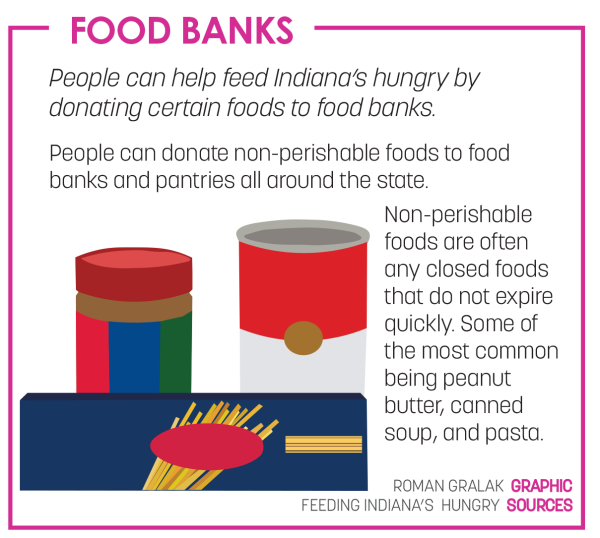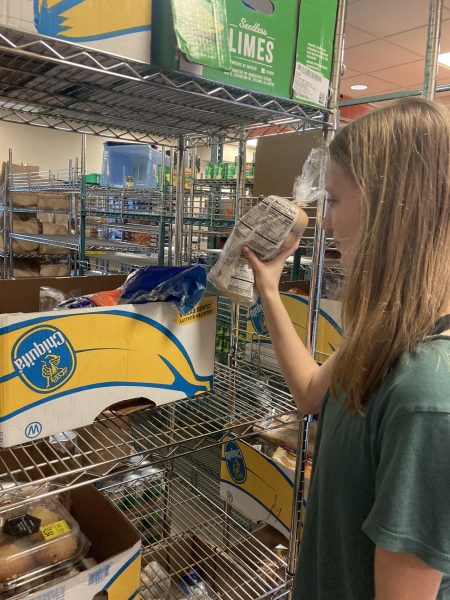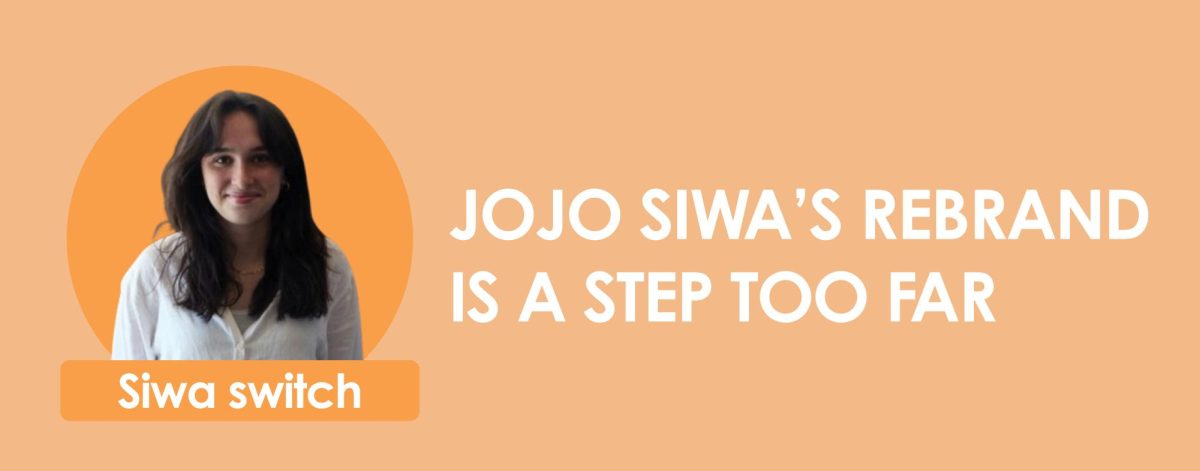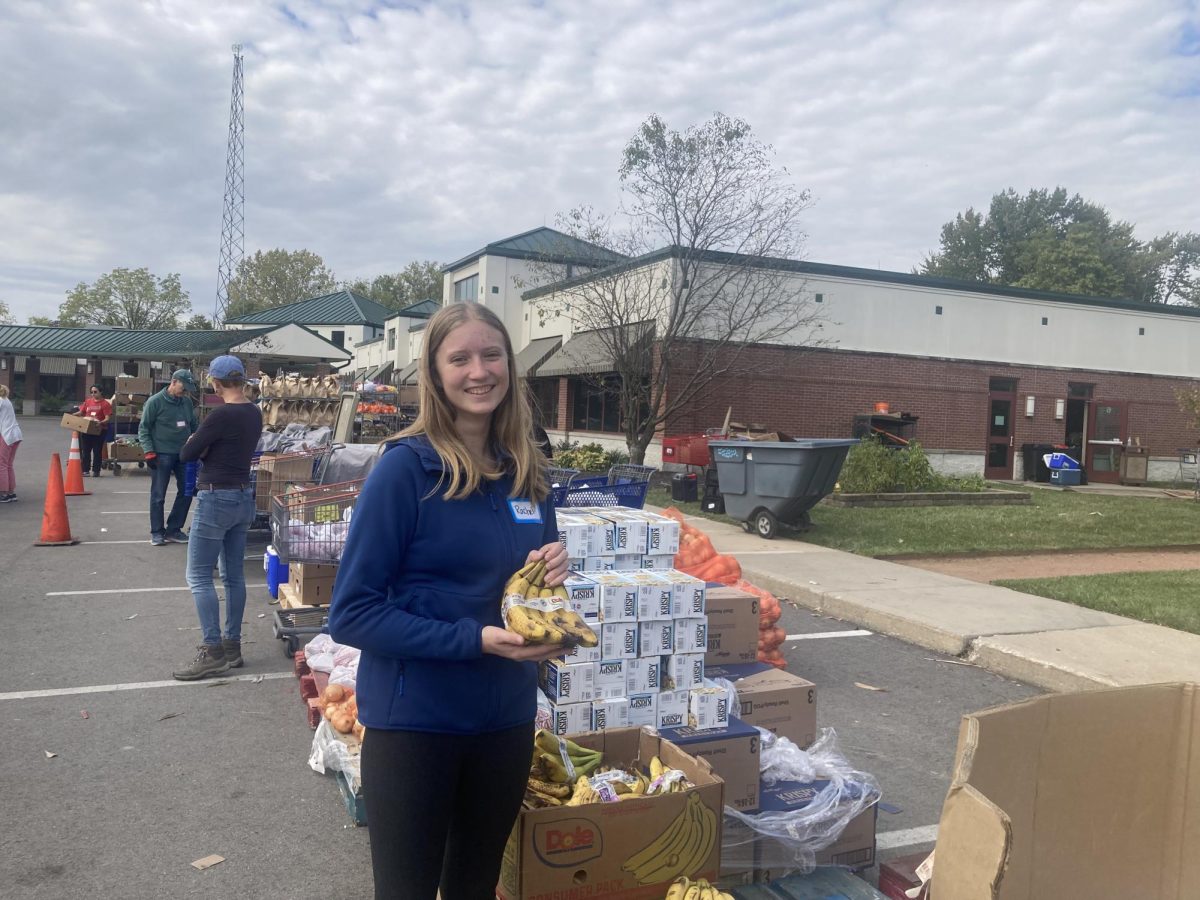In 2020, according to Feeding America, 11% of the population in Indiana were food insecure. Grace Larkey, co-president of Food For All and senior, said she created the club to help advocate and create awareness for food insecurity.
“We started Food For All this year because (officers of Food For All) learned in Biomedical Innovations about social disparities in health and how an individual’s health and communities’ health is so much more different and also saw why the circumstances on which they are surrounded are so important,” Larkey said. “One of those circumstances that could affect people’s health was food insecurity, and we all realized that food insecurity was a big issue in our country and that everyone needed accessible options to healthy food.”

Larkey said the club focuses on education and volunteering.
“We are focused on educating people about food insecurity and then empowering people with that knowledge to participate in volunteering events and donating foods or doing something about the issue,” Larkey said.
Larkey is not alone in her concerns regarding food insecurity in Indiana. Sophomore Rachel Lehner volunteers at nearby pantries and food banks, including Crooked Creek Food Pantry (CCFP) and Gleaners Community Food Bank.
She said,“Usually you sign up to stock stuff such as putting meat in bags or filling up bread packets or you sign up to distribute where you go around with shopping carts filled with food in the parking lot, and the people would pull up and open their trunks and you would give them a shopping cart each.”
Mary Ann Thaman, a volunteer at CCFP, said after the pandemic the numbers of people needing help with getting access to food increased.
According to Thaman the number of clients they served grew. Before 2020 they served approximately 1,900 households, however after the pandemic the number increased to 4,500 households.
“Some pantries saw a decrease in the number of people they served in late 2021, but we never saw that decrease, and, in fact, the number of people that we serve has continued to grow,” she said.
Larkey and Lehner said reasons for food insecurity can vary.
Larkey said, it goes back to home circumstances and if parents or guardians have enough money to purchase nutritious foods or do they have time to prepare their kids’ meals.
Lehner said, “If someone is transitioning and doesn’t have a support system such as spouses and family members to rely on.”
Thaman said those who experienced food insecurity, may do so for varying times too.
“For some, food accessibility is just for a season of their lives – loss of a job, unexpected medical expenses, taking on additional responsibilities,” Thaman said. “But for some, food accessibility is just part of long-term and generational poverty. Generational poverty is a vicious cycle. When you are hungry, learning is more difficult and that leads to educational challenges and that leads to poverty which leads to food insecurity.” Thaman added, “That is the vicious cycle of generational poverty.”

She said generational poverty affects adults as well.
Thaman said, “Often those who are food insecure don’t either properly or can’t afford to purchase some of the more nutritious foods like fresh fruits and vegetables. Improper diet directly contributes to poorer health as we age. Those who are food insecure have a higher incidence of Type 2 diabetes, which contributes to coronary disease and other physical conditions.”
To mitigate these problems, many volunteers and organizations try to advocate for this issue and create more opportunities to help out.
“Most pantries have three needs – volunteers, money and food,” Thaman said. “ I think (students) could probably do all three, although volunteering and conducting food drives are probably the easiest.”
Larkey said volunteering is a great way to uplift oneself and one’s community.
She said,“Volunteering is a great way to motivate yourself to keep taking action and to keep helping further and supporting the organizations that are doing this work.”





















































![Review: “Suits” is a perfect blend of legal drama and humor [MUSE]](https://hilite.org/wp-content/uploads/2024/04/unnamed-1.png)
![Chelsea Meng on her Instagram-run bracelet shop [Biz Buzz]](https://hilite.org/wp-content/uploads/2024/04/IMG_2446-1200x838.jpg)
![Review: Quiet on Set: The Dark Side of Kids TV is the long awaited exposé of pedophilia within the children’s entertainment industry [MUSE]](https://hilite.org/wp-content/uploads/2024/04/unnamed.jpg)
![Review: “The Iron Claw” cannot get enough praise [MUSE]](https://hilite.org/wp-content/uploads/2024/04/unnamed.png)
![Review: “The Bear” sets an unbelievably high bar for future comedy shows [MUSE]](https://hilite.org/wp-content/uploads/2024/03/unnamed.png)
![Review in Print: Maripaz Villar brings a delightfully unique style to the world of WEBTOON [MUSE]](https://hilite.org/wp-content/uploads/2023/12/maripazcover-1200x960.jpg)
![Review: “The Sword of Kaigen” is a masterpiece [MUSE]](https://hilite.org/wp-content/uploads/2023/11/Screenshot-2023-11-26-201051.png)
![Review: Gateron Oil Kings, great linear switches, okay price [MUSE]](https://hilite.org/wp-content/uploads/2023/11/Screenshot-2023-11-26-200553.png)
![Review: “A Haunting in Venice” is a significant improvement from other Agatha Christie adaptations [MUSE]](https://hilite.org/wp-content/uploads/2023/11/e7ee2938a6d422669771bce6d8088521.jpg)
![Review: A Thanksgiving story from elementary school, still just as interesting [MUSE]](https://hilite.org/wp-content/uploads/2023/11/Screenshot-2023-11-26-195514-987x1200.png)
![Review: When I Fly Towards You, cute, uplifting youth drama [MUSE]](https://hilite.org/wp-content/uploads/2023/09/When-I-Fly-Towards-You-Chinese-drama.png)
![Postcards from Muse: Hawaii Travel Diary [MUSE]](https://hilite.org/wp-content/uploads/2023/09/My-project-1-1200x1200.jpg)
![Review: Ladybug & Cat Noir: The Movie, departure from original show [MUSE]](https://hilite.org/wp-content/uploads/2023/09/Ladybug__Cat_Noir_-_The_Movie_poster.jpg)
![Review in Print: Hidden Love is the cute, uplifting drama everyone needs [MUSE]](https://hilite.org/wp-content/uploads/2023/09/hiddenlovecover-e1693597208225-1030x1200.png)
![Review in Print: Heartstopper is the heartwarming queer romance we all need [MUSE]](https://hilite.org/wp-content/uploads/2023/08/museheartstoppercover-1200x654.png)























![Review: Ladybug & Cat Noir: The Movie, departure from original show [MUSE]](https://hilite.org/wp-content/uploads/2023/09/Ladybug__Cat_Noir_-_The_Movie_poster-221x300.jpg)

![Review: Next in Fashion season two survives changes, becomes a valuable pop culture artifact [MUSE]](https://hilite.org/wp-content/uploads/2023/03/Screen-Shot-2023-03-09-at-11.05.05-AM-300x214.png)
![Review: Is The Stormlight Archive worth it? [MUSE]](https://hilite.org/wp-content/uploads/2023/10/unnamed-1-184x300.png)


